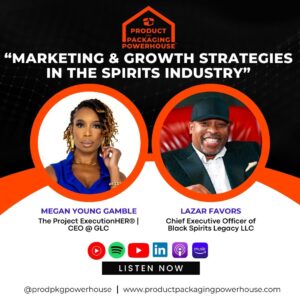Packaging regulations aren’t just about following the rules—they’re your gateway to building a sustainable, consumer-friendly brand. With global governments pushing for greener practices, understanding these evolving regulations is key to staying compliant while enhancing your brand’s reputation.
In this article, we’re breaking down the must-know packaging regulations that will impact your business. From reducing environmental impact to ensuring transparency, compliance can do more than protect you—it can propel your brand forward in today’s eco-conscious market.
*NOTE: the below resources are a comprehensive list, this is not all encompassing with ALL Resources.
Key Regulations You Should Know:
1. Extended Producer Responsibility (EPR):
EPR shifts the responsibility of waste management from consumers back to producers. Brands are held accountable for the full lifecycle of their products, including packaging waste. This encourages eco-friendly design and reduces landfill impact, with countries like the EU and states like California adopting EPR initiatives.
Why it matters: It’s not just compliance—EPR can be a key driver of your sustainability strategy, earning consumer trust
2. FTC Green Guides:
If you’re making eco-friendly claims, the FTC’s Green Guides will keep you honest. These guidelines ensure your green marketing and packaging statements are accurate and not misleading, helping you avoid potential legal issues.
Why it matters: Clear, truthful claims can enhance your brand’s green image and build stronger customer loyalty.
3. Modernization of Cosmetics Regulation Act (MoCRA):
If you’re in the cosmetics space, MoCRA is a game-changer. With stricter rules around packaging safety and ingredient transparency, it ensures that what you’re putting on the shelf meets higher safety standards.
Why it matters: Complying with MoCRA will not only keep you in the clear but also strengthen your product’s transparency and trustworthiness.
4. SB 54 (California):
This law is all about cutting down on single-use plastics and making recycling mandatory for packaging materials.
Why it matters: Adapting to SB 54 positions your brand as a leader in reducing plastic waste. Plus, it’s a step toward meeting global sustainability goals.
5. Fair Packaging and Labeling Act (FPLA):
FPLA ensures your packaging isn’t misleading and gives consumers the information they need to make informed decisions.
Why it matters: Clear, honest labeling isn’t just the law—it’s what today’s informed consumers expect.
Resources to Keep You Updated:
1. Government and Regulatory Agencies:
- US Food and Drug Administration (FDA): Regulates packaging for food, cosmetics, and pharmaceuticals, ensuring safety and accurate labeling.
- Federal Trade Commission (FTC): Offers Green Guides for making accurate environmental claims on packaging.
- US Environmental Protection Agency (EPA): Provides guidance on sustainable packaging and recycling for U.S. compliance.
2. Industry-Specific Organizations and Publications:
- Institute of Packaging Professionals (IoPP): The IoPP offers resources, certification programs, and industry events to help professionals stay updated on the latest packaging trends, innovations, and regulations.
- Sustainable Packaging Coalition (SPC): It provides resources and guides focused on sustainable packaging solutions. They offer webinars, research reports, and conferences on sustainable packaging regulations and best practices.
- Cosmetic, Toiletry, and Fragrance Association (CTFA): For brands in the cosmetics sector, CTFA offers insights into packaging regulations related to labeling, transparency, and environmental impact.
3. Industry News and Updates:
- Packaging World: An excellent source for news, trends, and regulatory updates specific to the packaging industry. They frequently publish articles on packaging regulations, sustainability, and innovations.
- Beauty Packaging Magazine: Beauty Packaging provides insights into packaging regulations affecting cosmetics, along with industry trends and brand innovations.
4. Expert Networks and Consulting Firms:
- Packaging Consultants: Consulting firms like Get Level Consulting and industry professionals such as Ariana Farina specialize in helping companies navigate packaging regulations. Engaging with consultants can provide tailored advice for your specific needs.
- Online Communities and Webinars: Join packaging-focused LinkedIn groups, forums, and webinars hosted by regulatory experts and industry associations. These platforms are valuable for discussing emerging regulations and sharing best practices.
5. Certification and Training Programs:
- Certified Packaging Professional (CPP): CPP certification provides in-depth knowledge of global packaging standards and compliance. Participating in such programs not only ensures you’re up to date but also validates your expertise in regulatory matters.
Certified Packaging Professional Program. - Certified Green Project Manager (GPM-b, GPM-s, GPM-m): GPM certifications is the world’s first performance based sustainability certification on how to approach project management focused on environmental, social and economic sustainability. Plus, I’m an ambassador with GPM and working toward this certification. 🙂
what are some of your top resources?
Until next time
Megan

Megan Young Gamble, PMP® is a forward-thinking packaging and project management veteran with more than 10 years’ of experience transforming mere ideas into consumer product goods for today’s leading beauty, wellness, and personal care brands. Known amongst colleagues and clients for her perseverance and “see it through” mentality, Megan The Project ExecutionHER® is the owner and principal consultant of GLC, packaging & project execution team for CPG brands, Co-Owner of Pallet Pros, and Host of Product & Packaging Powerhouse Podcast.
- [FREEBIE] Learn about “day in the life” of a Packaging Project Manager → Get our “Starter Packaging PM Freebie” [link] https://glc.ck.page/thestarterpackagingprojectmanager
- Subscribe & Access our Video Vault YouTube Channel [ link] https://bit.ly/GLConYouTube
- Join our Email List [link] https://glc.ck.page/55128ae04b
- Follow and Connect with Megan on LinkedIn [link] https://linkedin.com/in/megangamble
- Learn about GLC, Packaging & Project execution firm for CPG brands http://www.getlevelconsulting.com
- Work with Me @ GLC, Schedule Discovery Call https://calendly.com/getlevelconsulting/15-minute-insight-session






